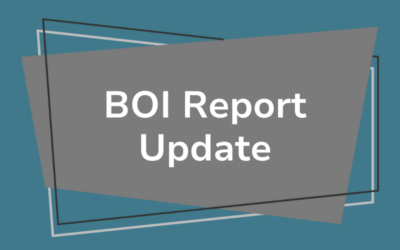Small business owners may be new to the phrase professional employer organization, but PEOs have been around now for several years and changing the face of human resources management.
According to the National Association of Professional Employer Organizations (NAPEO), small businesses that work with a PEO grow 70 to 9 percent faster, experience 10 to 14 percent less employee turnover, and are 50 percent less likely to go out of business. Although these sound like terrific benefits for any small business owner, there are also some drawbacks to working with a professional employer organization.
In today’s post, we discuss both the pros and cons of working with a PEO so that as a small business owner, you can make an informed choice before taking the next step and contacting PEOs.
What is a PEO?
A PEO (Professional Employer Organization) provides comprehensive outsourcing for all tasks and functions typically performed by an in-house human resources department. This may include employee job descriptions, benefits, payroll, insurance, and regulatory requirements.
PEOs act as a “co-employer” with your company so that they share contractual obligations with your employees. Management decisions, however, remain with your company. You continue to guide the daily job duties and responsibilities of your employees while the PEO manages their benefits administration and related tasks.
Pros and Cons of Working with a PEO
Let’s discuss both the pros and cons of working with a PEO, so that as a small business owner, you can make an informed choice before taking the next step and contacting PEOs.
The Benefits of Working with a PEO
There are many benefits of working with a PEO for a small business:
- Saving Time: Working with a PEO can save you considerable time. SCORE reports that 25 to 35% of a small business owner’s time is spent handling HR-related tasks, with 7 to 25% of that time alone spent on paperwork. A business owner’s time is precious and the more time that can be spent on tasks to grow a business and increase revenues, the better. Every minute spent on paperwork decreases the amount of time you can spend growing and running your business.
- Avoid penalties and fines: Tax laws continue to evolve into complex tangles that can be difficult for the average business owner to unravel. Missing deadlines or paperwork can lead to penalties and fines from the IRS, state or federal agencies. A PEO is skilled at handling all types of HR paperwork and takes the responsibility from your shoulders of managing deadlines, filing periods, and paperwork. It becomes their responsibility so you will not incur fines if problems arise.
- Improved employee retention: Because the PEO handles questions regarding benefits, there’s always someone available to help your team understand their benefits and work through any questions or problems. Additionally, a PEO can find better employee benefits and draw upon their industry contacts and resources to improve the benefits package you can offer to your employees. This tends to increase job satisfaction and makes your company more appealing to work with, leading to better employee retention rates.
Disadvantages of Working with a PEO
There are also some drawbacks to working with a PEO that you should be aware of before embarking on a co-employment relationship. These drawbacks include:
- Lack of control: The PEO manages all aspects of the HR department including health insurance coverage and other important benefits. They can, at their discretion, offer new policies or coverage to your employees. Sometimes this works out for the best since they can tap into their resources and can often gain better coverage than you can on your own. But this lack of control can be disturbing to a business owner used to retain total control over all aspects of his business.
- Impersonal service: All questions about HR and benefits are now handled by the PEO. Employees must call a hotline or 800-number instead of stopping by the HR department in your company. This may feel distant and unfriendly to some used to the former method of getting help for their questions. It does add a layer to your organization that may not be comfortable working through at first
- Monetary risk: Most PEO contracts require that their fees are paid in advance before work begins. If the PEO goes out of business or is sold to another company and you are unhappy about the new company, you may be out of luck and unable to break the contract. Choosing a stable, well-known PEO with a history of successful work helps mitigate this risk.
Is a Professional Employer Organization Right for Your Company?
A professional employer organization arrangement can offer significant benefits to a small business, but they aren’t for everyone. Companies with less than five employees may not be able to find a PEO willing to work with them; the average contract size with a PEO is for five or more employees.
Working with a PEO will cost your organization anywhere from $500 to $1,500 per employee. You may be able to handle your employee benefits administration and other HR tasks at a more cost-effective rate internally than by working with a PEO.
As the world of HR and benefits grows increasingly complex, small business owners may continue to turn to PEOs for help. But if you’re just looking for help with payroll or taxes, there are self-service options such as payroll software that may be a better option.
If you’d like to start looking for a PEO, consider this comparison of several services that offer insight into costs and features. And you may also want to file the link away for future reference, since as your business grows, so too will the number of employees needing benefits and other HR support. If a PEO isn’t right for you now, we hope you grow so big that you’ll need one someday!




